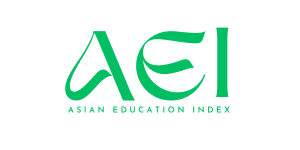Improving the Teaching of Folk Craft Theory in Technology Classes
Keywords:
technology, education, student, processAbstract
The article discusses the study of folk crafts today in the process of training teachers of technology education in higher education institutions in the process of teaching the subject "Folk Crafts and Art Design" and in general secondary schools in the subject "Technology Education", recommendations for improving the theory of folk crafts in technology classes. The importance of development as a social protection, its main directions, the benefits provided by the state to artisans were discussed. The advantages of using the STEAM method in teaching are also shown
References
Булатов С. Ўзбек халқ амалий безак санъати. - T.: “Mеҳнат”, 1991. Б. 384.
Крючков В. STEAM: секреты инновационной методики. https://robolab.by/novosti/steam-sekrety-innovacionnoj-metodiki.html
Кузьмина Н.В. Профессионализм личности преподавателя и мастера производственного обучения. – М.: Высшая школа, 1990. С. 117.
Muslimov N.A., Raximov Z.T., Xo‘jayev A.A. “Kasbiy pedagogika” Darslik.– T.: «Voris nashriyot», 2020. Б. 277.
Очилов М. Муаллим - қалб меъмори. Тошкент “Ўқитувчи” 2001. Б. 68.
Педагогика: Учеб. пособие для студентов пед. институтов / Под ред. Ю.К. Бабанского. – М: Просвещение, 1983. Б. 600.
Рахимов З.Т. Таълим жараёни самарадорлигини таъминлашда педагогик креативлик ва унинг зарурияти. “Замонавий таълим” журнали 2019 йил № 8-сон. Б. 3-9.
Рахимов З.Т. Таълим жараёнида талабалар ўқув-билиш компетентлигини ривожлантириш. “Замонавий таълим” журнали 2020 йил № 3-сон. Б-3-10.
Сластенин В.А. и др. Педагогика Учеб. пособие для студ. высш. пед. учеб. заведений / В. А. Сластенин, И. Ф. Исаев, Е. Н. Шиянов; Под ред. В.А. Сластенина. - М.: Издательский центр "Академия", 2013. С. 576.
Шарипов Ш., Муслимов Н. ва бошқалар. Меҳнат таълими. 5-синф. – Т.: “Шарқ”, 2012. Б. 239.
Ғуломов Ғ. Амалий санъат. – Тошкент: “Иқтисод-молия”, 2007. Б. 96.
Downloads
Published
Issue
Section
License

This work is licensed under a Creative Commons Attribution-NonCommercial 4.0 International License.
User Rights
Under the Creative Commons Attribution-NonCommercial 4.0 International (CC-BY-NC), the author (s) and users are free to share (copy, distribute and transmit the contribution).
Rights of Authors
Authors retain the following rights:
1. Copyright and other proprietary rights relating to the article, such as patent rights,
2. the right to use the substance of the article in future works, including lectures and books,
3. the right to reproduce the article for own purposes, provided the copies are not offered for sale,
4. the right to self-archive the article.














